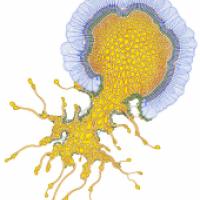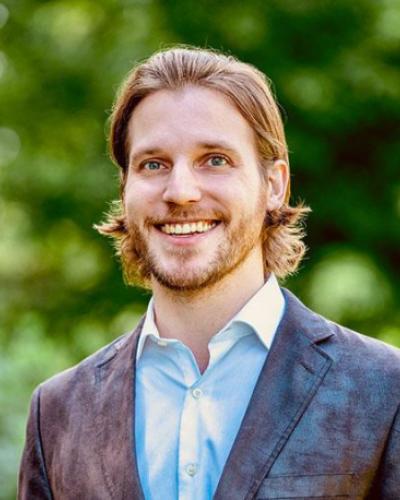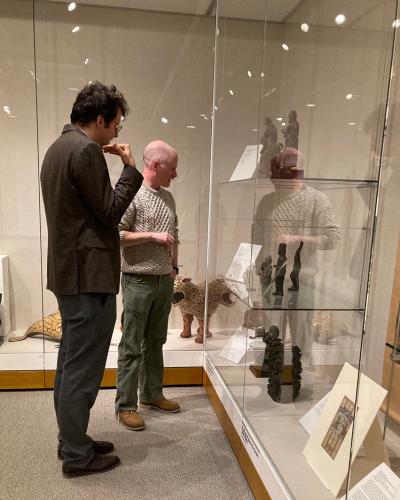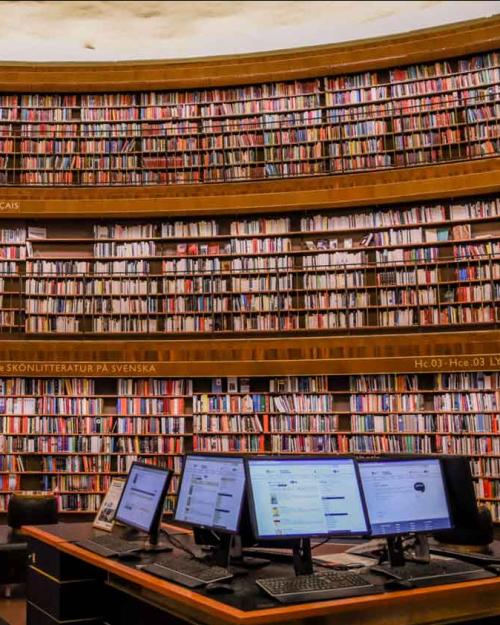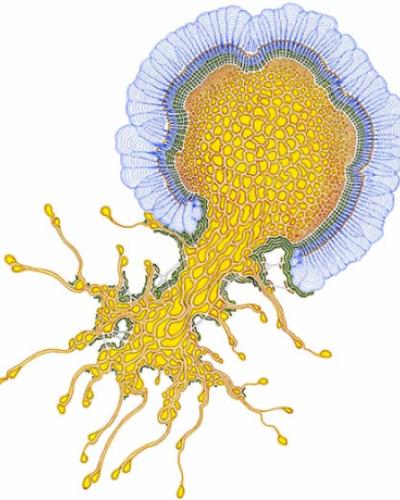Announcing the 2019-20 Fellows at the
Paul Fleming, Taylor Family Director
Invited Society Scholars
Dominic Boyer, Director of CENHS (Center for Energy and Environmental Research in the Human Sciences), Professor of Anthropology, Rice University
Brent Hayes Edwards, Professor of English & Comparative Literature and Jazz Studies, Columbia University
Cymene Howe, Associate Director of the Center for the Study of Women, Gender & Sexuality, Associate Professor of Anthropology, Rice University
Kathi Weeks, Professor of Gender, Sexuality & Feminist Studies, Duke University
Fellows
Mary Grace Albanese, English, Binghamton University
Prophetic Power: Haiti, the United States and Black Women’s Spiritual Labor
Yu-Fang Cho, English, Women’s, Gender & Sexuality Studies, Miami University of Ohio
The Afterlives of the Nuclear Pacific
Willie Hiatt, History, Long Island University, Post Campus
Electrifying Life Stories: An Oral History of Blackouts, Technology, and Shining Path Violence in Peru (1980-2000)
Dana E. Powell, Anthropology, Appalachian State University
Redesigning Diné Energy: Water and the Transition Imagination
Ariel Ron, History, Southern Methodist University
“King Hay” and the Energy Transition in the Nineteenth-Century United States
Erin Soros, Literature, Psychoanalysis, Creative Writing, University of Toronto
Manic Meanings: Trauma, Mental Energy, and Psychotic Speech
Alena J. Williams, Visual Arts, University of California, San Diego
Visualizing the Work of the AEG: Energy, Labor, and the Archive
Jewish Studies Fellow
James Adam Redfield, Theological Studies, Saint Louis University
Open House: Curiosity and Culture in Early Rabbinic Law
Faculty Fellows
Catherine M. Appert, Music
Atlantic Currents: Music and Memory in the New African Diaspora
Lori Khatchadourian, Near Eastern Studies
Industrial Ruination: The Vibrant Afterlife of Socialist Modernity
Athena Kirk, Classics
Animal Materialities in Ancient Greece
Rachel Prentice, Science & Technology Studies
Energy in Motion: Kinesthesia and Connection in Human and Horse Relations
Mellon Graduate Fellows
Alexandra Dalferro, Anthropology
Shimmer: Following the Energy Flows of Silk Production in Surin Province, Thailand
Samantha Wesner, History
Galvanizing the Citizen: Electricity and Revolutionary Energy in the Age of Democratic Revolutions
Mellon Postdoctoral Fellows
Amy Chun Kim, History of Art
Ideologies of Pure Abstraction: Modernism between Paris and Moscow
Hannah LeBlanc, Science & Technology Studies
Disposable: A History of Food Packaging
Joan Lubin, English
Social Science Fictions
Jon Ander Mendia, Linguistics
The Grammar of Ignorance
2019-20 Focal Theme: ENERGY
The at Cornell University seeks interdisciplinary research projects for residential fellowships that reflect on the theme of energy, its past, present, and futures.
Coming from the Greek energeia – work, activity, performance, force – and now synonymous with life and liveliness, verve and vitality, energy underlies the productive forces that animate the natural and social worlds as they scale from the macro- to the microcosm: from the music of the planets to dance, poetry, and art; from political movements to modes of labor (whether physical, mental, emotional, or mechanical); from the forces of history up to the carbon age and climate change.
In artistic expression, energy marks the ability to have an effect, to make things move: whether rhetorically by a turn of phrase, musically by organization and modulation of sound, or performatively in the coordination of words and bodies in space. Consider the ‘energy’ of a performance, the je ne sais quoi that sets one artwork, one interpretation, one version apart from others. In the social sphere, energy lies at the heart of labor power, whether human or machine, physical or mental, as well as in the multiple forms of unacknowledged labor: the energy invested in emotional, domestic, undocumented, or poorly paid work. Energy also fuels the political ideas that move people into the streets, to assemble and stand opposed – from #blacklivesmatter and #metoo to labor and equal rights movements. Finally, energy is bound up with mental life: from Freud’s energetic model of the psychic apparatus to the forces behind magical practices, magnetism, rituals, and religions – forces both immaterial and material that span the globe.
In its most timely inquiry, the issue of energy runs up against climate change. From carbon-based and nuclear sources of fuel to renewables such as solar and wind, our modes of dwelling on and sharing the planet (not only with fellow humans) require sustained reflections on energy: its history, uses, and abuses; its relation to ‘progress’ and colonialism; its futures as well as its costs. At stake in the question of energy are not only its political and economical valences, but also the social and cultural forces – the values, beliefs, attitudes, and images that shape our global past, present, and future.
The invites applications from scholars and artists who are interested in participating in critical dialogue concerning the topic of energy from a variety of disciplinary humanistic perspectives and practices.
2019-20 Courses on Energy
Image: Daniel Zeller, Deregulated Uncontainment, 2007, ink and acrylic on paper; courtesy of the artist

